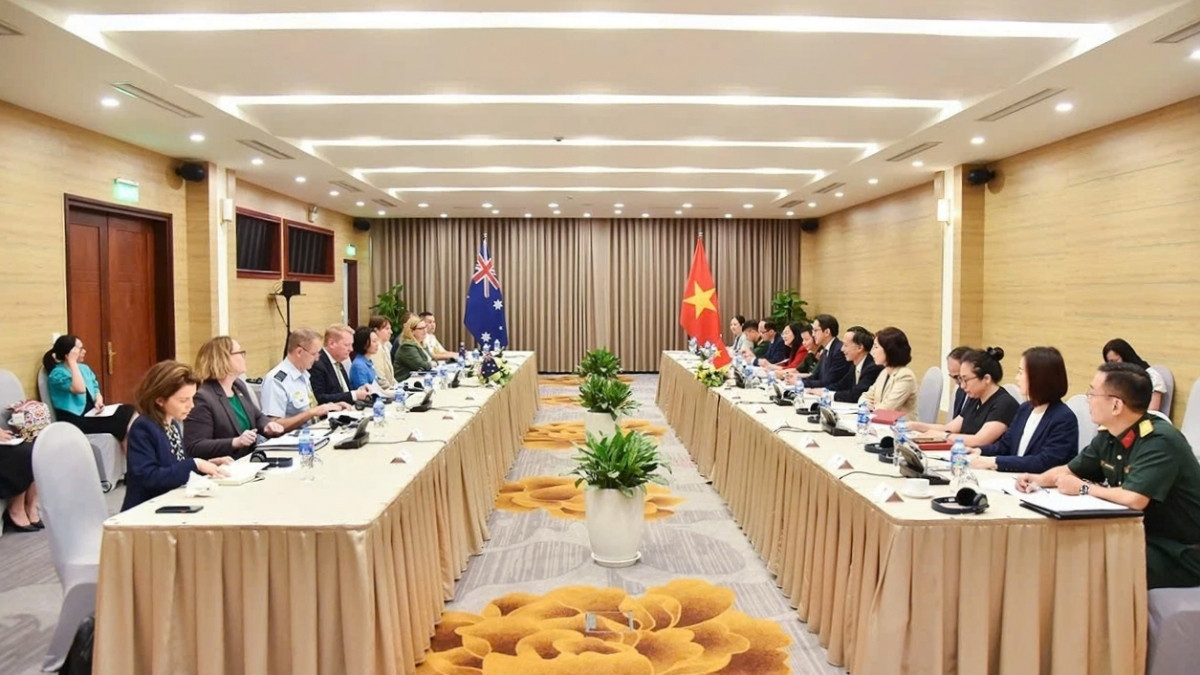
The annual event saw both sides agree that the joint relationship is growing steadily and comprehensively with substantial outcomes, with this demonstrated by the upgrading of bilateral ties to a comprehensive strategic partnership during Prime Minister Pham Minh Chinh's official visit to Australia in March.
The two countries share many similarities with high levels of political trust, which is an important foundation for them to further boost their all-around ties.
Noting that Vietnam, Australia, and other nations around the region are facing huge challenges due to growing geopolitical tensions, both sides consented to step up closer and more strategic linkages within the new relationship framework to respond to common challenges. They also agreed to intensify exchanges and consultations in an effort to further concretise the high-level agreements reached and expand new areas of co-operation in accordance with the demands, potentials, and interests of the two countries.
They greatly valued their fruitful defence ties through channels of dialogues, consultations, training, joint exercises, and especially effective cooperation in UN peacekeeping.
They underlined the need to further augment bilateral economic, trade, and investment collaboration with the aim of becoming each other’s top 10 leading trade partners and doubling two-way investment capital as set in the Enhanced Economic Engagement Strategy (EEES).
The Australia side expressed their wish to ramp up co-operation with the nation in the fields of digital transformation, digital economy, and high-tech industries, thereby increasing investment in wind power, diversifying supply chains, as well as training and developing businesses, especially small- and medium-sized enterprises in line with Australia's Southeast Asia Economic Strategy to 2040.
The Vietnamese greatly values Australia’s practical programmes and projects to support it in enhancing capacity and completing socio-economic targets, whilst Australia’s provision of ODA in areas of gender equality, climate change response, environment, and energy transition.
Both sides concurred to strengthen joint activities in education, thereby continuing to make it a key pillar of the bilateral comprehensive strategic partnership. They will therefore strive to create more favourable conditions for people-to-people exchanges and locality-to-locality co-operation, while also promoting each other’s culture to deepen mutual understanding between the two peoples.
The nation welcomed Australia’s sharing of information on changes in its policies to attract international students, asking for Australia’s continued favourable conditions for Vietnamese students, specifically not allowing new policies to affect the progress of visa issuance for Vietnamese students in Australia.
The two sides also shared information and viewpoints regarding strategic issues, as well as regional and international security matters of common concern.
They stated that fundamental changes in the Asia-Pacific and Indian Ocean regions; recent developments such as strategic competition between major countries, conflicts, and socio-political crises in many countries; and economic and technological separation, worsened with unpredictable fluctuations and risks in the global economy; all of which has had a great impact on the security and development of countries, including Australia and Vietnam.
They agreed to further increase co-operation at multilateral forums such as the UN, ASEAN, and ASEAN-led mechanisms, including the ASEAN Defence Ministers’ Meeting Plus.
Australia reaffirmed its continued close ties with ASEAN and support for the bloc in promoting its central role in the regional rule-based structure, as well as support to the settlement of disputes in the East Sea through peaceful measures with respect to international law, especially the 1982 UN Convention on the Law of the Sea (UNCLOS).
Australia affirmed that they aspire to beef up effective co-operation with the Mekong Sub-region through the Mekong-Australia Partnership programme in the second phase, focusing on areas of climate change, energy transition, food security, water security, and human resources training, contributing to building a self-reliant, sustainable, and inclusive Mekong Sub-region.
The two countries agreed to hold the 10th edition of this dialogue in Australia at an appropriate time in the future.
VOV